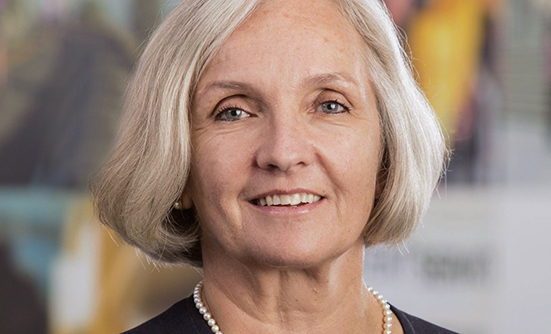As the second most common subtype of non-Hodgkin lymphoma (NHL), follicular lymphoma makes up 20% of all NHL cases1 and affects almost 15,000 people in the United States.2 Several treatments are available for follicular lymphoma, but so far there is no cure for this cancer. The indolent, or slow-growing nature of this type of blood cancer means that doctors may use a “watch-and-wait” approach until treatment becomes necessary.
However, according to Gwen Nichols, MD, Chief Medical Officer for The Leukemia & Lymphoma Society (LLS), patients with follicular lymphoma must take an active, not passive, approach to their watch-and-wait status. Being proactive should begin when being diagnosed with follicular lymphoma.
The patient should communicate with the doctor during the watch-and-wait period and about the decision of when to start treatment, Dr. Nichols emphasizes.
Ask Questions When Receiving the Diagnosis
A patient diagnosed with follicular lymphoma should have an open line of communication with the doctor when the pathology report and the diagnosis are given. Knowing what questions to ask, especially in the beginning, is important to be able to establish that communication.
At the time of diagnosis, Dr. Nichols recommends that patients ask the following 3 questions:
- Has an expert in lymphoma pathology looked at my slides?
Follicular lymphoma is one large category of NHL, which is comprised of more than 60 subtypes, so an accurate reading of the pathology slides (that are used for diagnosis), or the pathology report, is key to an accurate diagnosis.3
“The most important thing is not to make an error in the initial diagnosis, and most doctors will welcome a proactive patient who seeks another reading of the slide,” Dr. Nichols says.
- Do I have any signs that my lymphoma is likely to be more aggressive?
Testing for biomarkers, or biologic markers, should be part of every diagnosis of follicular lymphoma today, and should be done by a good pathologist who understands lymphoma.
“There are some molecular markers that may give hints about the disease being less likely to stay quiet, providing a reason to initiate treatment earlier,” says Dr. Nichols.
- How long am I likely to stay on the watch-and-wait approach?
The watch-and-wait approach can affect the patient physically and emotionally, so understanding what to expect may help patients cope with this uncertain period.
“Talk to your doctor if you think you may have trouble with a watch-and-wait approach from a psychological point of view,” Dr. Nichols advises.
Feel Comfortable Contacting Your Doctor
Once you are actively monitoring your follicular lymphoma, Dr. Nichols stresses the importance of feeling comfortable in contacting your doctor.
“If you think you’ll feel at all hesitant about reaching out to your doctor’s office, you need to first understand what you should be getting back in touch for, what you should be looking for, and how you can help yourself,” Dr. Nichols says.
Important questions to ask while you are in the active monitoring period include:
- What are the signs and symptoms I should be looking for that the lymphoma may be changing?
- Are there trends I should be noticing in my blood counts?
- At what point should I be contacting the doctor’s office?
- What can I actively do to maintain my health while monitoring the lymphoma?
“Most doctors think that it’s a great thing that you don’t need to get potentially toxic therapy,” Dr. Nichols says. But they also know that this period of waiting can be difficult for some patients. Open communication will result in a better understanding of what patients can expect, easing any anxiety that a watch-and-wait approach may provoke.
Knowing When to Begin Treatment
When to begin treatment for follicular lymphoma is a very personal decision, and your doctor will look at many factors to determine if treatment is necessary, including the size of the lymph node(s), how quickly the cancer is growing, and whether it’s in a place that will cause problems for you, the patient.
“There are elements that the doctor may see that the patient won’t necessarily feel,” Dr. Nichols says. “It’s not all about how you, as the patient, outwardly feel, but about what’s happening internally so that you continue to feel comfortable.”
However, Dr. Nichols reminds patients that how they are feeling is also important for determining when treatment is necessary. Patients should provide information about their exercise capacity, their eating habits, whether they are having frequent infections or fatigue, and any other factors that may tip the scales in one direction or another, including their emotional state.
“If, while you are under active surveillance, you can’t get past the fact that you have cancer and you aren’t actively treating it, and if it’s affecting your quality of life, that may be a very important factor in deciding when to initiate treatment,” says Dr. Nichols.
Treatment for Follicular Lymphoma
For patients with early-stage (stage I or II) follicular lymphoma, treatment may include low doses of radiotherapy to the affected area. If radiotherapy is not appropriate, then active monitoring is often used. Depending on the patient’s symptoms, biomarkers, and overall health status, treatment may be initiated, which can also include clinical trials.
For patients with advanced-stage (stage III or IV) cancer, more widespread follicular lymphoma can be treated successfully, but it typically relapses (returns) after treatment. If treatment becomes necessary, the current standard of care is chemotherapy plus immunotherapy, specifically with an anti-CD20 monoclonal antibody.
The anti-CD20 monoclonal antibodies currently approved for follicular lymphoma as first treatment are Rituxan (rituximab) or Rituxan Hycela (a combination of rituximab and hyalur-onidase human), and Gazyva (obinutuzumab).
Other treatment options approved for follicular lymphoma include Rituxan alone or Zevalin (ibritumomab tiuxetan), a localized CD20-directed radio-labeled antibody used after chemotherapy.
A newly proposed alternative to the standard treatment is a combination of Rituxan and Revlimid (lenalidomide), an immunomodulator drug that boosts the immune system and acts as a targeted therapy.4 Recent studies have shown that this alternative first-line therapy may be just as effective as Rituxan plus chemotherapy.5
“Although Revlimid is not formally approved in this capacity for follicular lymphoma, Revlimid is certainly available for treatment of later stages of lymphoma, and I think it’s going to move toward being a standard of care,” Dr. Nichols says. “Trying to find less toxic therapies that can be managed over the course of many years is a goal until we are actually able to cure follicular lymphoma.”
For patients with relapsed follicular lymphoma who have received at least 2 systemic therapies, the treatment options also include targeted therapies, especially the PI3K inhibitors Zydelig (idelalisib) and Aliqopa (copanlisib).
For more about treatment options, Dr. Nichols suggests contacting LLS’s Information Specialists. “Our master’s level oncology social workers, nurses, and health educators provide blood cancer patients and caregivers free personalized information and support tailored to their specific diagnosis and needs,” she says.
By contacting an LLS Information Specialist, patients and caregivers can also connect to LLS’s Clinical Trial Support Center (CTSC), to talk with specially trained nurses who help patients find and enroll in a clinical trial based on an individualized assessment. “Working closely with our CTSC nurses and Information Specialists, patients are provided with the information and support they need to overcome barriers to enrolling in a trial, including help with finances and lodging,” Dr. Nichols says.
Future Developments
This is an exciting time for follicular lymphoma research, Dr. Nichols says. A main area of research for this condition is new targeted therapies.
“Most of our therapies are very effective at knocking down the more differentiated cells growing in the body, but they aren’t getting that cell that keeps causing the disease to come back later,” Dr. Nichols says. “Once we figure out the initiating cell, and what makes it tick, we will be able to target those cells in a different way.”
Researchers are also trying to understand the role of the immune system in preventing follicular lymphoma from coming back after successful treatment.
“We are looking at approaches that may enhance the normal immune system’s ability to attack lymphoma cells, including CAR T-cell therapies,” Dr. Nichols says. “These therapies aren’t ready yet, but the fact that those trials are ongoing is exciting for understanding how to harness the immune system and help it to keep follicular lymphoma from coming back.”
Key Points
- Patients should take an active role in monitoring their follicular lymphoma during the watch-and-wait period
- Knowing what questions to ask, especially in the beginning, is important
- Always feel comfortable about contacting your doctor before and during treatment
References
- Leukemia & Lymphoma Society. Treatment for indolent NHL subtypes. www.lls.org/lymphoma/non-hodgkin-lymphoma/treatment/treatment-for-indolent-nhl-subtypes#Follicular%20Lymphoma.
- National Cancer Institute. SEER cancer statistics review 1975-2014. Updated April 2, 2018. https://seer.cancer.gov/archive/csr/1975_2014/results_merged/sect_19_nhl.pdf.
- Leukemia & Lymphoma Society. NHL subtypes. www.lls.org/lymphoma/non-hodgkin-lymphoma/diagnosis/nhl-subtypes.
- National Comprehensive Cancer Network. NCCN Guidelines for Patients: Follicular Lymphoma Grade 1-2. 2017. www.nccn.org/patients/guidelines/nhl-follicular_lymphoma/40/.
- Inman S. Rituximab/lenalidomide potential frontline therapy for follicular lymphoma. OncLive. June 4, 2018. www.onclive.com/conference-coverage/asco-2018/rituximab-lenalidomide-potential-frontline-therapy-for-follicular-lymphoma.
Patient Resources
Leukemia & Lymphoma Society
www.lls.org/lymphoma/non-hodgkin-lymphoma/treatment/treatment-for-indolent-nhl-subtypes
www.lls.org/informationspecialists; phone 800-955-4572
NCCN Guidelines for Patients – Follicular Lymphoma
www.nccn.org/patients/guidelines/nhl-follicular_lymphoma/










